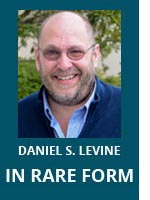A Third of Rare Disease Patients Are Unaware They Can Access Unlicensed Medicines
February 5, 2024

There are no approved treatments for the vast majority of rare diseases, a reality that makes early access programs an important source of needed medicines to people with a rare disease for which there may be no alternatives available.
But while two-thirds of people with a rare disease expressed a willingness to receive medicines through their country’s healthcare systems prior to a regulatory approval, a third of patients were not aware of the potential to do so through so-called early access programs.
The findings are from a study from NaviGATE, a U.K.-based pilot education program for rare disease patient advocates and organizations created by Clinigen. Clinigen works with pharmaceutical companies to facilitate greater participation in rare disease research and development and to enable increased access to medicines for more patients. It’s been involved in early access programs for 35 years, half of which are for rare diseases.
“Shockingly, it can take five to thirty years to get a diagnosis of a rare disease, and when they finally receive one, patients often struggle to cut through the complex healthcare industry to find a way forward,” said Lorna Pender, global patient engagement lead at Clinigen. “Patients need to be backed by knowledge and resources, and knowing where they can get access to medicines–even before they are on the market–is vital for people with undiagnosed or rare diseases.”
Clinigen said the findings come from a questionnaire issued to the rare disease community to understand where there are knowledge gaps. It said it is using findings from the questionnaire to build an educational training program that can serve as a resource for patients, families, community groups and organizations.
The data comes from 50 rare disease patients, parents or carergivers, patient advocates, organizations, and foundations. Of the 50 participants, 42 percent represent patients who are undiagnosed.
The company said the data revealed a knowledge gap about unlicensed medicines. Medicines are unlicensed when they haven’t been taken to market in a region, in some cases because the manufacturer decides there aren’t enough patients as needed for a clinical trial, or the trial is too expensive. These medicines can be vital for patients with rare diseases.
Early access programs can give people with life threatening or debilitating conditions access to medicines prior to a regulatory approval when there is an unmet need. Only 15 respondents (30 percent) have heard of early access programs and have a basic understanding, and only 4 percent of respondents navigate them confidently. The majority (69 percent) want to know where they can access quality information about these programs.
The study also found that as many respondents used Google or other search engine to find information on early access programs as those who said they asked healthcare professionals about these programs.
The goal here, though, may be more about raising awareness than performing research. The study is small with just 50 participants. It was conducted by an organization in the business of managing early access programs that is seeking to capitalize on the heightened interest in rare disease ahead of World Rare Disease Day.
Nevertheless, early access programs are a critical means for patients to get access to needed treatments when alternatives may not exist. Rare disease patients, caregivers, and organizations should be aware of them as a viable option for accessing potential therapies.

Stay Connected
Sign up for updates straight to your inbox.
